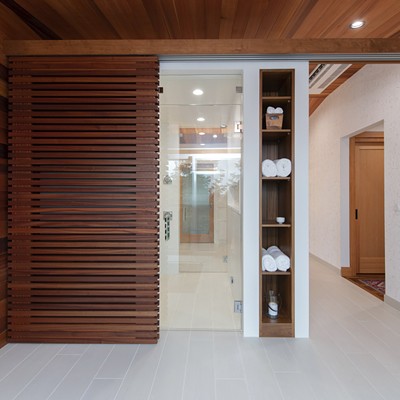
The first time you see one, it may take a minute to figure out just what it is that you’re looking at. It seems like a simple bike. Or is it a trike? But then again, this knobby-tired, colorful little three-wheeler has the pedals on the handlebars. Who would ride this? Who’d want one of these things?
So far, 31,000 people in 94 countries have become the very happy recipients of their very own PETs — short for “personal energy transportation.” And for people who don’t have use of their legs, a PET is the gift of mobility.
The idea was born 17 years ago, when a Florida man serving as a missionary in the Democratic Republic of the Congo (then called Zaire) recognized a vast need for wheelchairs. Rev. Larry Hills marshaled a small group of volunteers, and a journey of giving began.
“This chapter is the only one west of the Rockies,” says Dick Carpenter, who established the Inland Northwest outpost of PET projects. Last year, the 100 or so volunteers in Spokane, Puget Sound, Portland, Anchorage, Lewiston and western Canada turned out 250 PETs. Carpenter, a retired attorney, says he started the affiliate because “it hit my heart” when he heard about the organization. “I was in the Air Force during Vietnam. I used to teach people to use land mines,” he says quietly.
Indeed, victims of land mines are some of the recipients of the PETs. It’s estimated by the International Campaign to Ban Land Mines that each year, 4,000 people are killed or maimed by land mines.
Additionally, the wheelchairs are donated to “people with birth defects, polio, animal bites, accidents,” says Carpenter. “There are so many people who could use one of these and, unfortunately, more people who need them are being created each day.”
That’s why Carpenter and the crew of Inland Northwest PET volunteers devote so many hours each week to the effort. And more volunteers are always needed.
“You’d think with all the retired guys our age, they’d just jump at the chance to do this,” Carpenter says.
Lyle Crecelius has been with the Inland Northwest chapter since the beginning. A retired radiologist, Crecelius says the work is satisfying. Not only does he enjoy working with his hands, but “we’re able to provide resources and labor to make these carts. And it’s what we should be doing.”
In fact, most of the Inland Northwest PETs are assembled at a workshop on Crecelius’s property. The other main workshop is owned by Carpenter, but a great deal of work is done all over the Northwest, in other privately owned garages and workshops — wherever a volunteer can get it done.
Carpenter digs into a box at the workshop. “See these wooden blocks?” he says. “We have a volunteer in Lewiston, and these are what he makes for us. Without him, we couldn’t ship the PETs.”
After the carts make their way to their new owners, via a network of nonprofits and through corporate donations, PET International simply requests that the shipping agency send back a photo of the new PET owner receiving his or her cart.
Many of those photos adorn the rustic PET workshop walls in Spokane. Without exception, they all show a beaming PET owner sitting on a new, liberating three-wheeler.
“You can just tell what these PETs mean to these people,” says Carpenter. “That’s why we make them and why we need to make more.”
Carpenter speaks with near-reverence when talking about the Spokane-area businesses that either donate or provide parts and manufacturing at significantly reduced costs.
“They are wonderful and generous,” Carpenter says. “At one point we contacted all our suppliers and said we were planning to go from making 100 PETs a year to 250. We asked them, ‘Can you stay with us?’ and they all said yes.”
What Carpenter doesn’t speak much about is the personal financial contributions that he and the other PET volunteers make. The organization does receive — and gladly accepts — monetary donations, but a great deal of the materials costs are borne by the volunteers themselves.
Still, it’s something that Carpenter and the other volunteers simply feel compelled to do: taking the time, spending the money, having the heart to make these unusual little trikes … or carts … or bikes … that change lives.
To learn more, visit petspokane.org.















